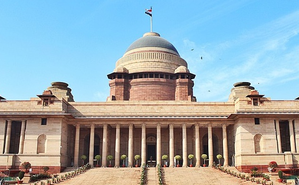Increase in BSF's jurisdiction does not take away powers of Punjab Police, says SC
New Delhi, Dec 1 (IANS) The Supreme Court on Friday remarked that the Centre's decision to expand the BSF's jurisdiction from existing 15 km from the border to 50 km does not take away powers of the Punjab Police.

New Delhi, Dec 1 (IANS) The Supreme Court on Friday remarked that the Centre's decision to expand the BSF's jurisdiction from existing 15 km from the border to 50 km does not take away powers of the Punjab Police.
A bench, headed by CJI D.Y. Chandrachud and comprising Justices J.B. Pardiwala and Manoj Misra, was hearing an original suit filed by the Punjab government under Article 131 of the Constitution against the Ministry of Home Affairs (MHA) notification issued in October 2021.
The bench asked Punjab’s Additional Advocate General Shadan Farasat and Solicitor General Tushar Mehta to exchange issues to be framed in the suit as it said that it will take up the suit for hearing on January 16 next year.
During the hearing, Farasat, appearing for the state government, contended that the notification issued by the Centre goes against the spirit of federalism as public order and police falls under List II (State List) of Schedule VII of the Constitution.
He said that Punjab's geography and concerns are strikingly different from other border areas like Jammu and Kashmir, Ladakh, Gujarat and Rajasthan, as the border area in the state is densely populated, whereas the same in Gujarat and Rajasthan comprises saline marshes and desert land, respectively.
Farasat highlighted that BSF's jurisdiction in Punjab has remained 15 km from the border in all the previous notifications issued by the MHA since 1969.
Section 139 of the Border Security Force Act, 1968, empowers the Centre to notify the area and extent of the border force's operational mandate from time to time. The suit contended that the notification is ultra-vires the Constitution, as it defeats the purpose of Entry 1 (public order) and 2 (police) of List-II of Schedule VII of the Constitution and encroaches upon plaintiff's plenary authority to legislate on issue which relate to or are necessary for the maintenance of public order and internal peace.
IANS
